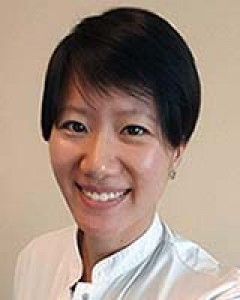Context
Many physicians migrate internationally – for medical school, specialty training, academic and professional opportunities1. While ‘brain drain’ of physicians from poorer to richer countries is problematic, migration engenders new perspectives on international health systems and cultures, and facilitates cross-national collaborations for research, education, and policy2. However, migration for physicians remains challenging. Physicians typically face a daunting series of procedural tasks to prove their clinical competency before being allowed to practice in a new country. During the coronavirus pandemic of 2020, countries rapidly mobilized frontline healthcare workers, including physicians.
Mobilizing and retaining physicians is vital as health systems care for exponentially growing numbers of patients with coronavirus disease (COVID-19), in addition to providing ongoing acute and chronic care. Quarantine of frontline healthcare workers with suspected or confirmed COVID-19, and deaths related to COVID-19, have exacerbated pre-existing physician shortages3.
Pandemic circumstances stimulated measures to address workforce shortages in the face of COVID-19 surges, including deregulation of licensure and credentialing requirements for physicians: medical students were recruited or graduated early, residents practiced more independently, and, in the USA, state-based licensing boards granted emergency reciprocity so that physicians could practice across state lines4. Yet, international medical graduates (IMGs) remain an underrecognized pool of talent in the community and visa delays remain significant bureaucratic barriers for physicians who are qualified to help5. Tackling barriers that prevent IMGs from contributing their skills and expertise to the fight against COVID-19 may help supplement workforce at critical times, as in this pandemic.
In this commentary, we describe key barriers faced by physician-migrants when seeking licensure in a new country. As internists who have practiced in international settings, we offer an overview based on our experiences as IMGs in non-US countries. We also describe examples from COVID-19 pandemic emergency deregulation efforts, which may offer insights about potential reductions in bureaucratic regulatory barriers that prohibit mobilization of IMG talent in general during non-pandemic circumstances.
Issues
Bureaucracy: a waste of talent and time?
Time-consuming administrative, licensing, and credentialing approvals have long been mandated worldwide. These labor- and resource-intensive procedures waste talent and productivity. Twenty-six percent of the practicing US physician workforce move to the USA as IMGs6. The USA has notoriously high barriers: most IMGs must pass four licensure examinations, complete a US residency training program and pass specialty board examinations. However, the USA is far from unique. Author DD had more than 10 years experience in US academic practice as a faculty clinician-educator, yet upon moving to Australia experienced a 6–9-month delay in clinical credentialing, with required clinical supervision. Similarly, DD experienced months of credentialing delays from Australia to Canada, with a 6-month licensure gap when returning to the USA. In the European Union, such gaps may be accentuated because of policies guiding specialty recognition, which compare years rather than hours of training; this may result in undervaluing the number of training hours in US residency programs (duty hour limits of 80 v 48 hours per week)7.
Many countries enforce strict language requirements as part of licensure. Even after meeting these requirements, non-native speakers are frequently perceived as less qualified, including for leadership or non-clinical positions. After five years of US-based practice, author TL is in her fourth year of reduced clinical practice in the Netherlands because of language requirements, extensive mandatory examinations, and internships8. Furthermore, licensure and professional examinations have been postponed for more than 6 months due to government-mandated COVID-19 social distancing regulations. Author EB underwent multiple administrative procedures for credentialing in different countries, first as a European intern in the USA and then as a German resident in Switzerland and again in China. Special governmental permission was required for a residency in China, with forthcoming challenges expected regarding European recognition of that training upon return to her home region.
Such well-intended measures, meant to assess competency and uphold specific policies and societal expectations, are often not evidence-based. They instead propagate barriers for physician-migrants, resulting in repetitive requirements and wasteful bureaucratic delays in licensing. This observation is especially concerning when this means persistent physician shortages translate into patient morbidity and mortality9,10.
Mobilizing international medical graduate talent during the pandemic
Temporary emergency measures that fast-tracked medical students and physician trainees to fill frontline workforce gaps can serve as examples for IMG recruitment and deployment. Senior medical students nearing graduation were recruited in Germany, Austria, Italy, and Malaysia, with some US medical schools graduating students early to meet pandemic needs11,12. Medical students were deployed in support of nursing duties on inpatient wards or, in some non-US countries, work in emergency departments13,14. Some resident physicians or specialty physicians-in-training were advanced to independently practicing physicians in the USA. Similarly, specialists were mobilized to do COVID-related work15,16.
Some effort surfaced with regards to IMGs; however, lack of consistency and deferral of policy interpretation to a local level likely resulted in inaction or non-adoption. During New York state’s COVID-19 surge in March, the governor issued an executive order that IMGs who had completed 1 year of graduate medical education, presumably in the USA, but who may not yet have had a full license to practice, were permitted to provide hospital care17. In Ontario, Canada, unlicensed IMGs who had passed specific examinations, and students who graduated in the past 2 years from a Canadian medical school, could apply for a 30-day Supervised Short Duration Certificate18.
In the Netherlands, the Royal Dutch Medical Association, which is responsible for licensing specialist physicians, advised that currently unlicensed physicians may be utilized at the discretion of a hospital or health system to handle ‘non-complex care’ if they have had work experience within the past 10 years19. The president of the German Hospital Society advocated for health authorities to issue ad hoc permits to foreign professionals, proposing that later review towards resuming formal recognition procedures could follow after the pandemic20. News reports suggest that Malaysia may have tapped ‘unregistered’ doctors to help fight the pandemic21. However, most explicitly state that changes are short-term, specifically for the COVID-19 pandemic response. Unfortunately, months after many countries’ first peak of COVID-19 cases, it remains unclear to what extent institutions or regions utilized these mechanisms to mobilize this talent pool to support care during the pandemic surge.
The competency challenge
Physician licensing regulations are intended to ensure patient safety, consistent care quality and prevent fraudulent or criminal behavior. Recent German debates highlight these key concerns22. However, temporary changes may generate useful evidence regarding competence among various subsets of pandemic providers. In our experience, the barriers to routine efficient practice when moving to a new country include language (pharmaceuticals, terminology, and communication style), cultural healthcare expectations and norms, specific documentation and billing procedures, and some country-specific differences in clinical practice guidelines.
The rapid onboarding of physicians during this crisis highlights the inefficiencies and delays attributable to current regulatory barriers. Determining clinical competence is challenging, but we have neither the time nor the capacity to administer extensive examination procedures during a pandemic. This raises the challenge of improving and/or simplifying pathways that attest to competence while also eliminating hurdles, a core argument that motivated the US Medical Licensing Exam (USMLE) to move to pass/fail reporting for the USMLE Step 1 exam23. However, one just-published study showed that USMLE examination scores predict performance on the American Board of Internal Medicine certification examinations, suggesting that IMGs who have already performed well on the USMLE examinations may be ideal candidates to fast-track into higher levels of responsibility24. Re-examining our processes now can facilitate longer term recognition for physicians who are risking their lives to care for patients but who will be back in limbo when the crisis resolves.
Lessons learned
Streamlining international medical graduate credentialing globally
Licensing boards and authorities should strive for standardized competency-based basic professional recognition. Towards this aim, Australia developed a Competent Authority pathway that enables provisional registration of physicians from the UK, the USA, Canada, New Zealand, or Ireland with the Medical Board of Australia, pending full, general registration25. However, to guide competency-based recognition, a more organized and international collaborative effort could engage professional medical societies to identify common scopes of practice and competencies across specialties26.
Secure online credentialing repositories and standardized, accessible language certification could shorten licensing timelines. In critical-need regions, during non-pandemic times, qualified employers might also be granted flexibility to identify and sponsor talented IMGs for recruitment in alignment with local needs. Finally, computer translation applications or online professional language translation services could facilitate non-native speakers’ clinical practice and integration into the healthcare system, reducing unnecessarily lengthy government-mandated language requirements.
Most countries had pre-existing physician maldistribution or workforce shortages9, and the COVID-19 pandemic exacerbated those shortages. The COVID-19 pandemic facilitated cross-state and international licensing, mobilizing some physician-migrants, or IMGs, in response to surges. These crisis responses highlight one key opportunity: streamlining requirements is achievable. Lessons learned should become part of a more comprehensive plan to recognize and recruit previously credentialed IMGs into international healthcare systems. It’s time to reconfigure professional recognition procedures and leverage physician-migrants’ knowledge and diversity for the benefit of the global physician workforce and the health of patient populations across the world.
Acknowledgements
Ewelina Biskup was supported by Krebsliga Schweiz, BIL KFS 4261-08-2017.


